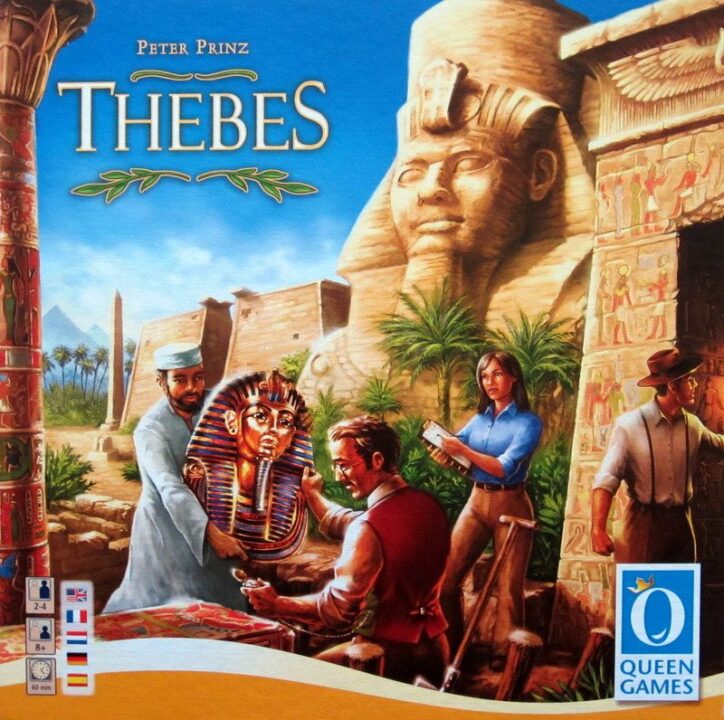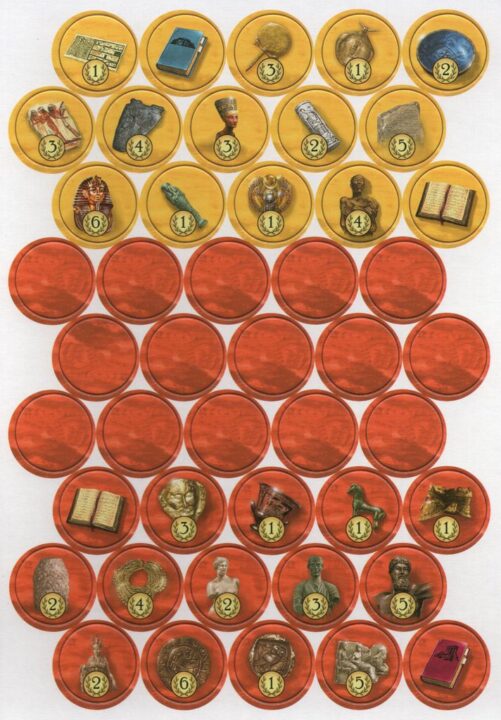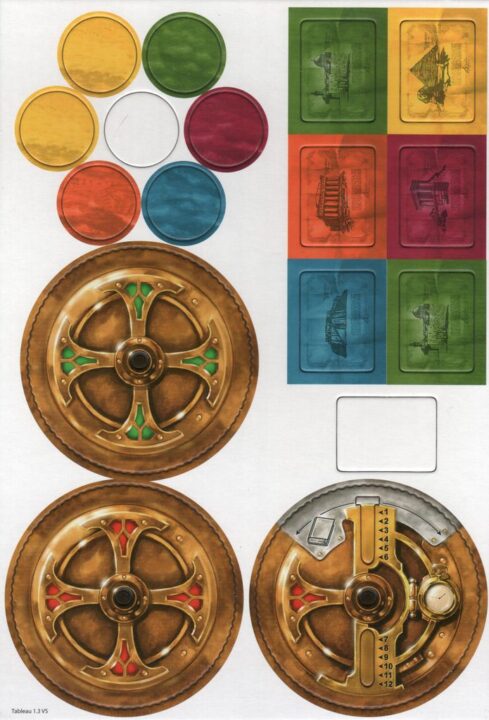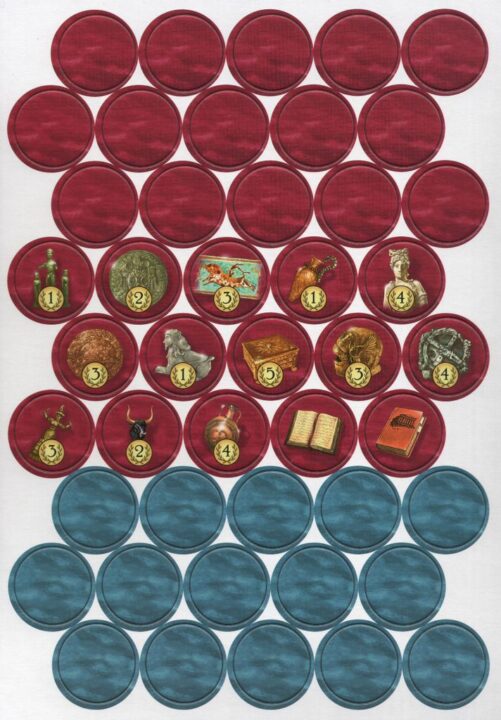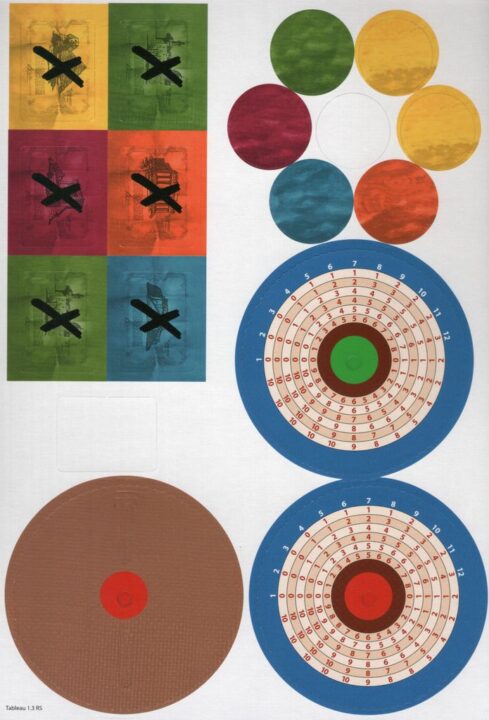Overview
Diving into the world of artifacts and ancient civilizations, my latest tabletop adventure involves unraveling the mysteries within Thebes. This review delves into the game’s distinctive dynamics, inclining notably toward its time allocation mechanism, the element of chance during excavation token drawing, and the intricacies of player interaction. Reflecting on personal game nights and insightful analysis, I aim to give a comprehensive look into how these mechanics foster a rich, engaging player experience.
How It Plays
Thebes is a board game where players immerse themselves in the role of archaeologists competing to discover artifacts across various ancient sites. Gameplay revolves around strategically allocating time to perform actions such as digging for treasures, attending conferences, or gathering knowledge. Here’s a brief overview of how the game unfolds:
Setting up
Each player chooses a color and receives the corresponding pieces. The game board, representing different excavation sites and a time track, is set up in the middle of the table. Item cards, artifact tokens, and knowledge tokens are shuffled and placed in their designated areas. Players place their tokens on the starting point of the time track, ready to begin their adventure.
Gameplay
Players take turns moving around the board, choosing actions based on strategic importance and time cost. Options include traveling to dig sites, taking cards, or drawing tokens. Crucial to winning is the time mechanic, where the player furthest back on the time track takes the next turn. This unique mechanism ensures a dynamic flow and tactical depth in balancing immediate actions with long-term planning.
Winning the game
The game ends after a set number of rounds, and the player with the most points, accumulated through discovered artifacts and scholarly achievements, is declared the winner. Efficient time management, smart excavation choices, and a bit of luck with artifact discovery are key to winning in Thebes.
Want to know more? Read our extensive strategy guide for Thebes.
Mastering Thebes’ Unique Time Allocation Mechanism
One memorable element of Thebes that always becomes a focal point in my play sessions is its innovative time allocation mechanism. This gameplay feature has both fascinated and frustrated me in equal measures. It requires players to meticulously plan their actions based on weeks spent on various activities, rather than brute-forcing their way through the game with sheer action volume. I recall one tense game night where my strategic timing of archaeological digs and conference attendances led me to victory, underscoring the mechanic’s depth. The alternating rhythm of action-taking based on time, instead of turns, adds a strategic layer that I particularly enjoy navigating.
Moving on, let’s delve into the unpredictability of the Excavation token drawing chance.
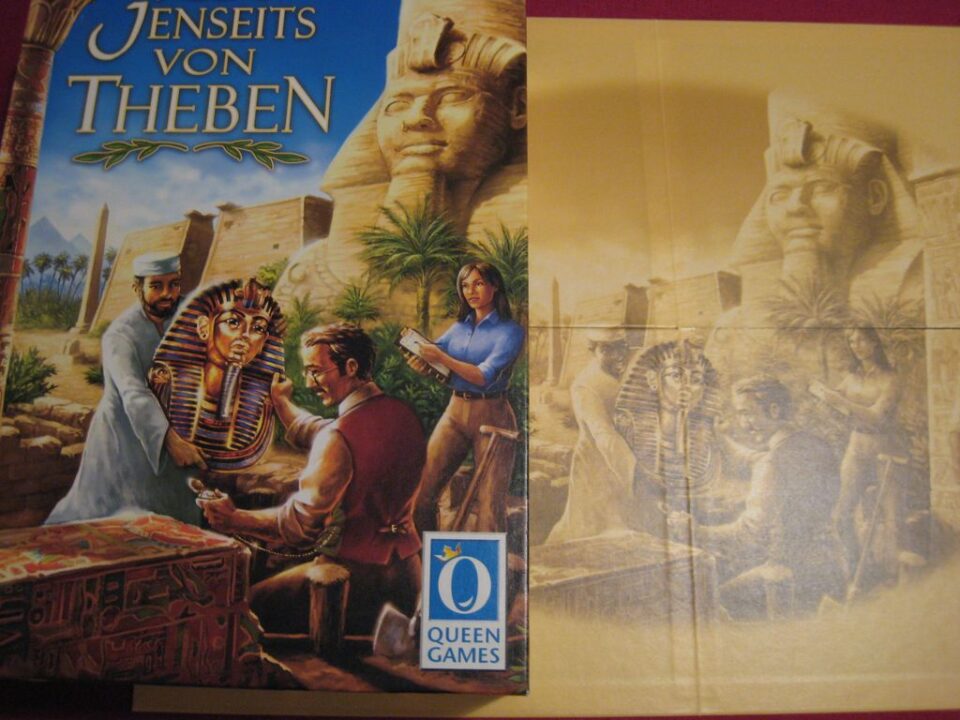
Mastering the Draw: Excavation Strategies in Thebes
When diving into the world of Thebes, one aspect that always brings an element of suspense and calculation to the table is the token drawing chance during Excavations. It’s a game portion fueled by the perfect blend of luck and strategy. I remember a session where my friend, certain of victory, delved into a dig site with a plethora of time tokens. The anxiety around the table was palpable as they drew token after token, a mix of priceless artifacts and heaps of sand. This mechanism, drawing blind from a bag, captures the essence of archaeological ventures—you’re never quite sure what you’ll uncover. Yet, therein lies the beauty. Developing a tactile sense for when to push your luck or conserve resources for later digs became a cornerstone of our strategy discussions post-game. These shared moments of triumph or despair over a draw have defined many of our game nights, making this seemingly simple mechanic a backdrop for deeper player interaction dynamics.
Speaking of which, let’s delve into how these draws enhance or hinder player interactions in Thebes.
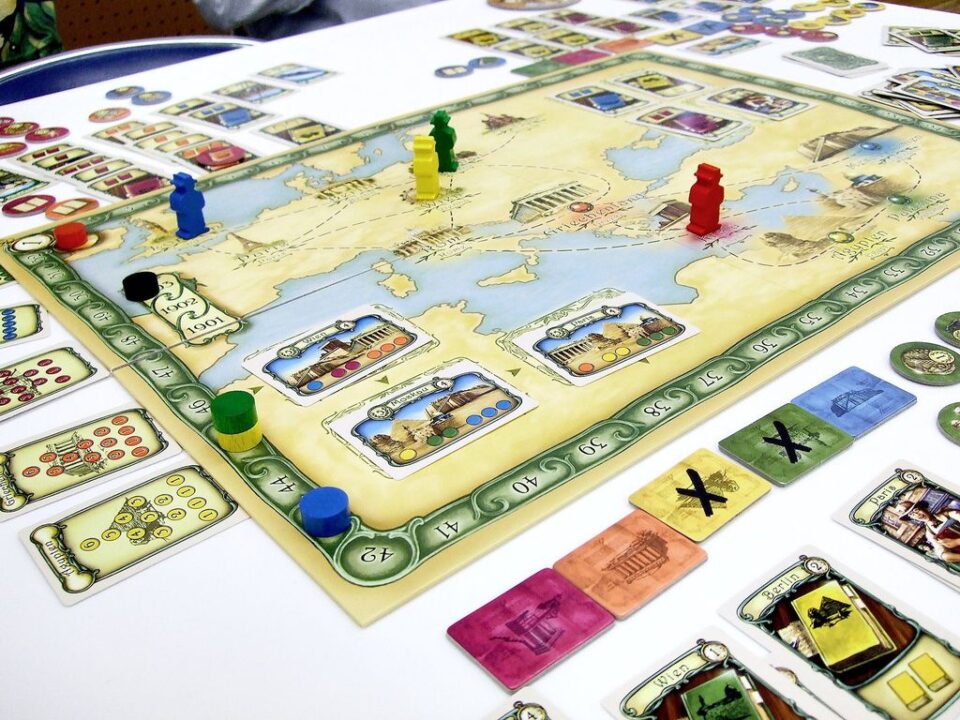
Unearthing the Social Treasures of Thebes
In my numerous sessions playing Thebes, the dynamics of player interaction always stand out. Initally, it’s a race to gather knowledge cards, leading to lively negotiations and alliances. However, as we delve into the excavation phases, the atmosphere shifts. Here, players often spectate each other’s digs, erupting in cheers or groans with each token draw. Such moments not only punctuate the game with suspense but also weave a narrative of rivalry and camaraderie unique to each playthrough.
A memorable session once ended with a virtually last-ditch excavation by a player far behind in points. The collective anticipation, followed by their unexpected comeback, made for an unforgettable gaming night highlight. This ability of Thebes to foster engaging player interactions through its mechanics fosters a lively social environment, thereby ensuring its recommation for any game night.
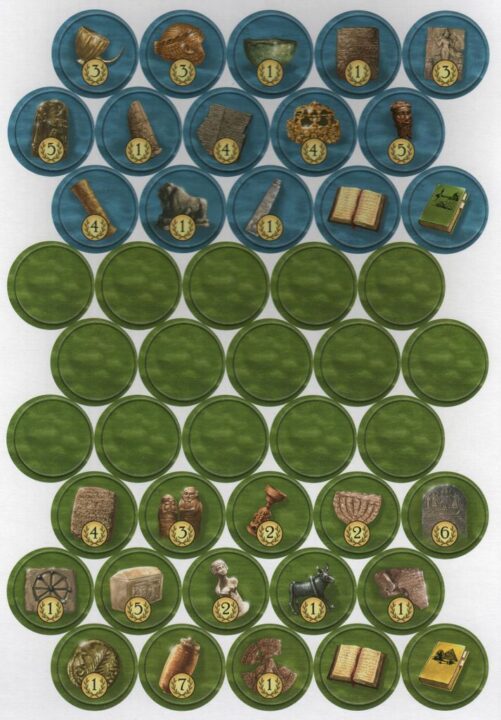
Conclusion
In wrapping up this review of Thebes, it’s clear that its innovative approach to board gaming shines through its use of the time allocation mechanism, providing a foundation for thrilling strategic depth rarely seen in its counterparts. The game brilliantly intertwines the suspense of excavation with a chance mechanism that ensures each dig feels both exciting and nerve-wracking, accentuating the game’s theme and historical allure. Moreover, through its emphasis on player interaction, Thebes doesn’t just stop at being a game about archaeology; it evolves into a social experience, binding players together in moments of negotiation and shared discovery. This review has traversed the key elements that make Thebes a standout game, from personal gameplay I’ve enjoyed greatly, to the social dynamics it fosters during game nights. Thebes is not just a game; it is an experience—one that resonates well beyond the final scoring round.

